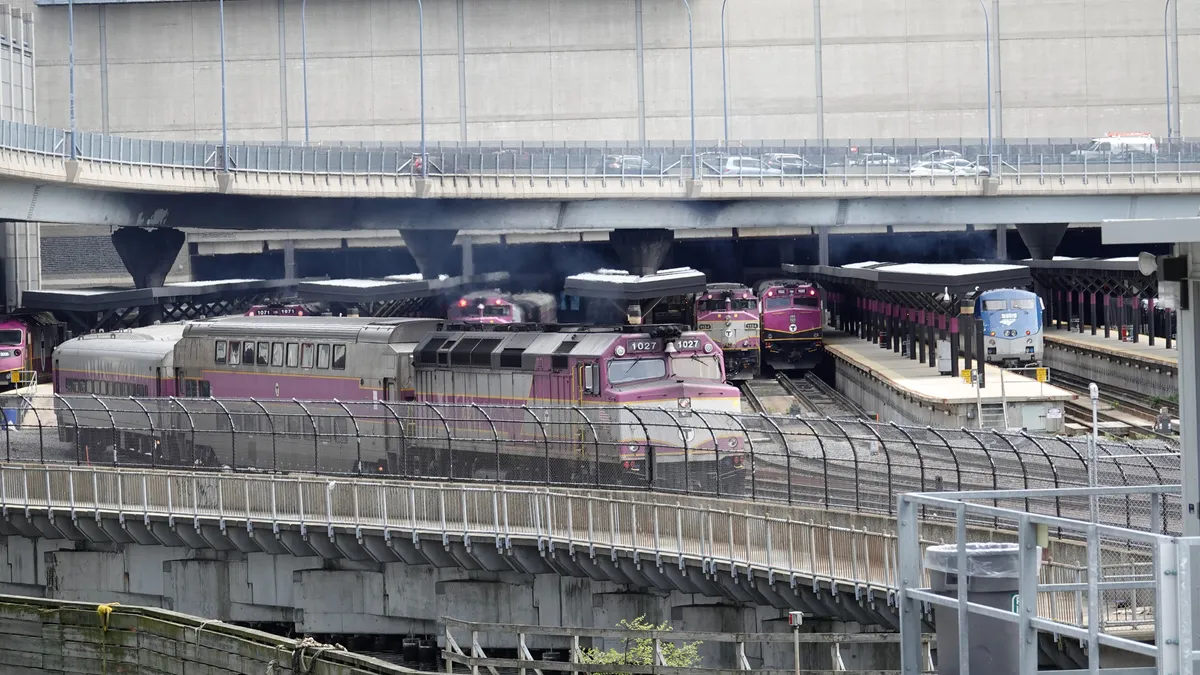Dive Brief:
- Up to 60,000 Massachusetts residents could qualify for half-price fares on subways, buses, commuter trains and ferries as soon as this spring, pending approval of a Massachusetts Bay Transportation Authority proposal it briefed reporters about on Monday.
- If approved by the MBTA Board of Directors, the new program would apply to nondisabled riders ages 26 to 64 with incomes that are 200% of the federal poverty line or less.
- The agency is reaching out to community-based partners, one or more of which it will select to help eligible participants access the program.
Dive Insight:
The MBTA serves more than 170 communities in the Greater Boston area and is the nation’s third-largest transit agency by the number of passenger trips, according to the American Public Transportation Association. “Fare affordability had become a challenge for riders with low income,” said Lynsey Heffernan, chief of policy and strategic planning at the MBTA, during the briefing. “This problem had been exacerbated by a history of fare increases in the greater Boston area.”
Heffernan expects that those who participate in the program will take up to 30% more trips on the MBTA. Regular riders could save over $700 annually on bus and subway rides and up to $2,000 annually on commuter rail, she said. The program is anticipated to cost the transit agency approximately $52 million to $62 million at full enrollment, which could take a few years, Heffernan said.
Massachusetts Gov. Maura Healey’s proposed fiscal year 2025 budget includes $45 million for the low-income fare program. “That $45 million is really essential to help get us through this at this point in time,” Heffernan said.
Riders who are enrolled in the Supplemental Nutrition Assistance Program, the Transitional Assistance for Families and Dependent Children program, the Emergency Aid to the Elderly, Disabled & Children program or certain MassHealth programs would be eligible for the low-income fare program without any additional information, Heffernan explained.
Steven Povich, MBTA senior director of fare policy and analytics, said that while most riders would apply online, the agency wants to find community partners that can provide physical locations where people can get in-person help with their applications.
Local transit and equity advocates greeted the program with approval when it was first announced on Jan. 24. “Reduced fares will be transformative for low-income riders throughout the MBTA service area and on all modes of public transit, and especially for communities of color facing historical burdens of exclusion and poverty,” Community Labor United Senior Organizer Ziquelle Smalls said in a statement.












